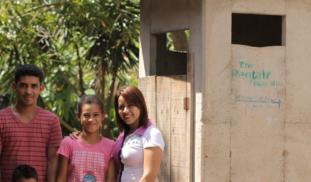Please wait...
About This Project
Water Missions International
The project includes construction of 80 household latrines in two Honduran communities. In the pilot we are conducting baseline surveys with families on sanitation and hygiene practices, authoritative sources of knowledge, and what factors they consider important in their toilet. This will help development practitioners to understand the risks and success indicators for ecological models of sanitation.
More Lab Notes From This Project

Browse Other Projects on Experiment
Related Projects
Real-time underwater fish identification and biomonitoring via machine learning-based compression of video to text
Underwater monitoring of marine life has traditionally followed a "set it and retrieve it” approach due...
Combining eDNA & Biologging Technologies to Capture Deep-Sea Predatory Interactions Between Whales & Prey
We aim to combine eDNA sampling and biologging to study predator-prey interactions in the deep sea in real...
Can A Low-Cost Camera & Loitering Guard Better Monitor Marine Protected Areas?
Marine Protected Areas (MPAs) are difficult to enforce due to their remoteness and often invisible borders...





